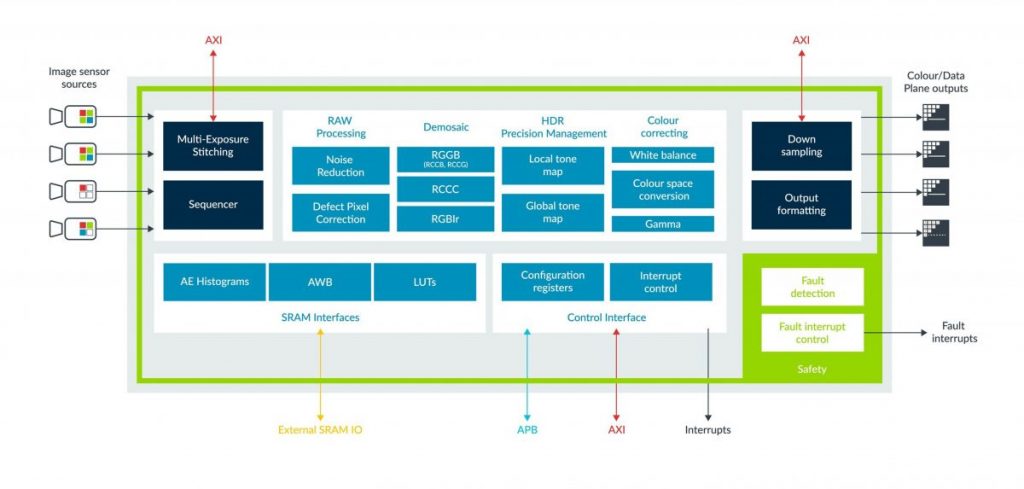UK-based microprocessor specialist Arm has unveiled a number new computing solutions aimed at the autonomous vehicle market, for both automotive and industrial applications.
The suite of products includes its Cortex-A78AE CPU, Mali-G78AE GPU and Mali-C71AE ISP, which are engineered to work in combination with supporting software, tools and system IP to enable silicon providers and OEMs to cater for complex autonomous workloads.
“Autonomy has the potential to improve every aspect of our lives, but only if built on a safe and secure computing foundation,” said Chet Babla, vice president of automotive and IoT at Arm. “As autonomous decision-making becomes more pervasive, Arm has designed a unique suite of technology that prioritizes safety while delivering highly scalable, power-efficient compute to enable autonomous decision-making across new automotive and industrial opportunities.”
The Cortex-A78AE CPU is the company’s latest, highest performance safety capable CPU, which offers the ability to run different, complex workloads for autonomous applications such as mobile robotics and driverless transportation. According to the company, it provides a 30% performance uplift compared with its predecessor while also supporting features to achieve the relevant automotive and industrial functional safety standards, ISO 26262 and IEC 61508 for applications up to ASIL D / SIL 3.
The Mali-G78AE is Arm’s first GPU to be designed for safety. The company says it delivers rich user experiences and heterogenous compute to safety-critical autonomous applications, and that the unit allows for a new approach to autonomous GPU workloads, thanks to a Flexible Partitioning system, featuring up to four fully independent partitions for workload separation of safety use cases.
As a result, GPU resources can be utilized for safety-enabled human machine interfaces or for the heterogenous compute needed in autonomous systems. For example, an infotainment system, an instrument cluster with ASIL B requirements and a driver monitoring system can now all run concurrently and independently with hardware separation within an automotive application.
Finally, the Mali-C71AE is designed to support vision systems in automotive applications, with Arm noting it has the flexibility to support both human and machine vision applications such as production line monitoring and ADAS camera systems.
Alexander Hitzinger, senior vice president for autonomous driving at the Volkswagen Group and CEO of Artemis (both of which deploy Arm products), noted, “The requirements for higher levels of driver automation, electrification and immersive in-vehicle experiences are continually growing, and scalable, heterogenous, safe compute is critical in order to meet the requirements of future vehicle electronics systems. Innovation such as Arm’s new technologies and the extensive ecosystem that supports it will help to accelerate the deployment of next-generation vehicles.”


